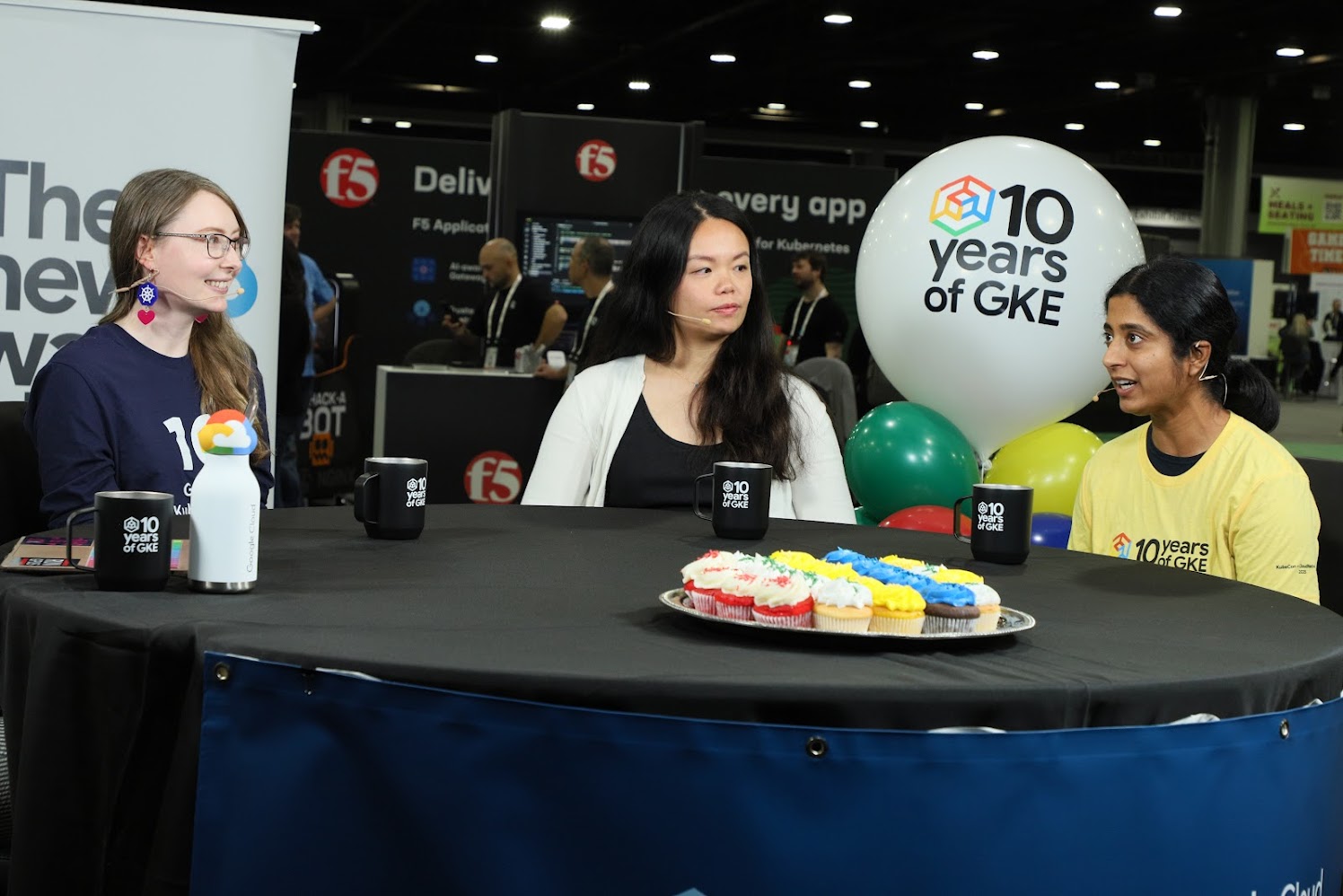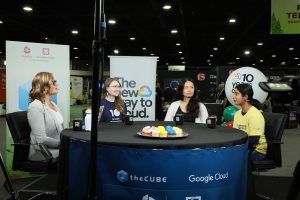 AI
AI
 AI
AI
 AI
AI
It was Amie Wei’s first hackathon, and she thought her idea to build a “cart to kitchen” AI shopping assistant would at least help her decide what to make for her parents when they came to visit, regardless of whether she won or not.

GKE Hackathon winner Amie Wei (second from right) turned her first-ever hackathon into a victory with a “cart-to-kitchen” AI assistant.
The intelligent helper that Wei (pictured, center) built was part of the “GKE Turns 10 Hackathon” in September. It analyzed what was in her grocery cart and recommended recipes, using a number of Google’s products, including Gemini, GKE Autopilot, and Agent Development Kit and Agent-to-Agents protocols to let AI models communicate. For Amie’s first effort the outcome was pretty good. She
won.
“I’m super glad I did it,” Wei said. “It also felt pretty daunting to try and build an application that uses AI and also GKE, but there was a lot of resources out there. Google offered very generous credits and so it was just a really cool experience for me to learn hands-on.”
Wei spoke with theCUBE’s Savannah Peterson at the KubeCon + CloudNativeCon NA event, during an exclusive broadcast on theCUBE, SiliconANGLE Media’s livestreaming studio. She was joined by Kaslin Fields (left), manager of cloud runtimes developer relations at Google Cloud, and Shubhika Taneja (right), senior product marketing manager, AI/ML, at Google, and they discussed trends that emerged from the hackathon and Google’s recent announcements for Kubernetes. (* Disclosure below.)
The GKE hackathon offered participants an opportunity to build next-gen microservices using one of Google’s pre-built applications. There was a clear interest in vibe coding, according to Fields, along with a desire among the developers to maximize the contribution of AI agents.
“The point of a hackathon is to prototype some things, see if this idea makes sense, be creative with it and get something working,” Fields said. “I think vibe coding works really well for that. Another trend we saw was multi-agent architectures. They’re the new big thing and I found it very interesting that a lot of folks gravitated toward those.”
In keeping with developer interest in agents, Google unveiled a new set of capabilities this week to support Kubernetes-native agent code execution. The latest tools rely on gVisor to isolate agent environments and execute LLM-generated code.
“If you look at our core philosophy, the first one is just how Google invests in open-source Kubernetes for the next-gen workloads,” Taneja explained. “At KubeCon this year, we announced the Agent Sandbox that’s proactively getting ready for the agentic wave. We also launched a bunch of LLM-aware capabilities to Kubernetes.”
Taneja noted that in addition to Wei as the hackathon’s global winner, there was a regional competition as well. The regional winner was not very familiar with GKE and the platform, but the available tools carried the day.
“One key thing that struck me was that, with AI, there is so much at your disposal that even though you may not be fully familiar with the platform, go try it,” Wei said. “You can get the hands-on experience really easy and start right away.”
Wei’s winning application generated a number of tasty-sounding recipes, including “Lemon-Herb Roasted Chicken” and “Mediterranean Salmon Salad.” Did she try any of the recommendations herself?
“I’ve made variations of it,” Wei said. “I’m also the type where I don’t follow instructions a hundred percent.”
Here’s the complete video interview, part of SiliconANGLE’s and theCUBE’s coverage of the KubeCon + CloudNativeCon NA event:
(* Disclosure: Google Cloud sponsored this segment of theCUBE. Neither Google Cloud nor other sponsors have editorial control over content on theCUBE or SiliconANGLE.)
Support our mission to keep content open and free by engaging with theCUBE community. Join theCUBE’s Alumni Trust Network, where technology leaders connect, share intelligence and create opportunities.
Founded by tech visionaries John Furrier and Dave Vellante, SiliconANGLE Media has built a dynamic ecosystem of industry-leading digital media brands that reach 15+ million elite tech professionals. Our new proprietary theCUBE AI Video Cloud is breaking ground in audience interaction, leveraging theCUBEai.com neural network to help technology companies make data-driven decisions and stay at the forefront of industry conversations.